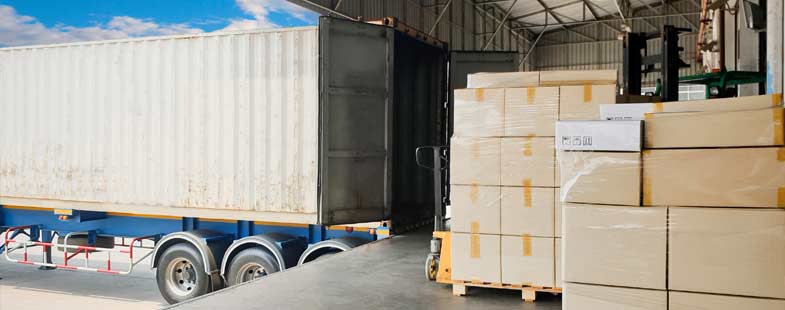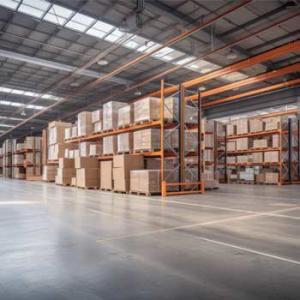Georgia to Rhode Island LTL Freight Quote
FREE, No Obligation LTL Freight Quote. Book Your LTL Freight Online for Georgia to Rhode Island
FREE LTL Freight Shipment Quote
Georgia to Rhode Island Less Than Truckload Shipment Rates
Georgia to Rhode Island LTL Shipping, connected to more than 6,400 LTL Carrier Drivers
Nationwide / Georgia to Rhode Island LTL Freight Quote
Georgia, a freight logistics powerhouse, is an enigmatic blend of historic architecture and burgeoning industrialism located in the southeastern region of the United States. Home to the bustling cargo hub of the Port of Savannah, the state offers a strategic advantage for Less Than Truckload (LTL) freight operations.
The state’s comprehensive logistics network includes key interstate highways, freight rail lines, and cargo airports that ensure seamless connectivity across the country and world. Interstates 75, 85, and 20 facilitate the transit of freight through the state and beyond, creating a multitiered distribution network that simplifies cross-country transportation.
One of the core assets of the Georgia freight ecosystem is the high concentration of distribution and warehousing facilities. With vast distribution spaces, Georgia enables efficient consolidation and deconsolidation necessary for LTL shipments, creating an ideal environment for analyzing costs, reducing transit times, and improving the cargo’s safety.
The state’s logistics industry is bolstered by a robust workforce and world-class infrastructure, making freight operations in Georgia reliable and efficient. The state’s educated, skilled workforce, trained and honed at specialized logistics educational programs, cater expertly to the LTL freight industry.
Access to Port of Savannah sweetens Georgia’s freight prospects by providing logistics companies with a maritime gateway to international markets. The port, one of the busiest in the U.S., handles countless LTL shipments daily, promoting Georgia as a crucial trading partner with the global community.
Georgia’s commitment to the logistics and transportation industry has been demonstrably strong over the years. The state’s Department of Transportation remains focused on expanding and enhancing freight rail capacity, improving freight logistics in major metropolitan areas, and advocating for better transport safety standards.
Overall, Georgia offers a dynamic, integrated freight logistics landscape that not only fosters growth but also promises flexibility and reliability. Thus, making the state an ideal location for LTL freight operations. From the world-class port facilities to the exceptional road and rail networks, Georgia’s logistics infrastructure stands out as a vital node in the domestic and global freight transportation web.
Georgia, GA | Latitude: 32.1656221 | Longitude: -82.9000751
Georgia is a state in the Southeastern region of the United States, bordered to the north by Tennessee and North Carolina; to the northeast by South Carolina; to the southeast by the Atlantic Ocean; to the south by Florida; and to the west by Alabama. Georgia is the 24th-largest state in area and 8th most populous of the 50 United States. Its 2020 population was 10,711,908, according to the U.S. Census Bureau. Atlanta, a “beta(+)” global city, is both the state’s capital and its largest city. The Atlanta metropolitan area, with a population of more than 6 million people in 2021, is the 8th most populous metropolitan area in the United States and contains about 57% of Georgia’s entire population. Other major metropolitan areas in the state include Augusta, Savannah, Columbus, and Macon.
Founded in 1732 as the Province of Georgia and first settled in 1733, Georgia became a British royal colony in 1752. It was the last and southernmost of the original Thirteen Colonies to be established. Named after King George II of Great Britain, the Georgia Colony covered the area from South Carolina south to Spanish Florida and west to French Louisiana at the Mississippi River. On January 2, 1788, Georgia became the fourth state to ratify the United States Constitution. From 1802 to 1804, western Georgia was split to form the Mississippi Territory, which later was admitted as the U.S. states of Alabama and Mississippi. Georgia declared its secession from the Union on January 19, 1861, and was one of the original seven Confederate States. Following the Civil War, it was the last state to be restored to the Union, on July 15, 1870. In the post-Reconstruction era of the late 19th century, Georgia’s economy was transformed as a group of prominent politicians, businessmen, and journalists, led by Henry W. Grady, espoused the “New South” philosophy of sectional reconciliation, industrialization, and white supremacy. During the mid-20th century, several people from Georgia, most notably Martin Luther King Jr., were prominent leaders during the civil rights movement. Atlanta was selected as host of the 1996 Summer Olympics, which marked the 100th anniversary of the modern Olympic Games. Since 1945, Georgia has seen substantial population and economic growth as part of the broader Sun Belt phenomenon. From 2007 to 2008, 14 of Georgia’s counties ranked among the nation’s 100 fastest-growing.
Georgia is defined by a diversity of landscapes, flora, and fauna. The state’s northernmost regions include the Blue Ridge Mountains, part of the larger Appalachian Mountain system. The Piedmont plateau extends from the foothills of the Blue Ridge south to the Fall Line, an escarpment to the Coastal Plain defining the state’s southern region. Georgia’s highest point is Brasstown Bald at 4,784 feet (1,458 m) above sea level; the lowest is the Atlantic Ocean. With the exception of some high-altitude areas in the Blue Ridge, the entirety of the state has a humid subtropical climate. Of the states entirely east of the Mississippi River, Georgia is the largest in land area.
LTL Freight Quotes and Services for Georgia to Rhode Island
LTL Freight, also known as Less Than Truckload Freight, is a transportation method that is used for shipping goods that do not require a full truckload. This method is ideal for businesses that have freight shipments less than 15,000 pounds. It is a cost-effective and efficient way to transport smaller, more manageable freight. In contrast to Full Truckload (FTL) shipments, which occupy an entire trailer, LTL shipments share the trailer space with other shipments. This allows multiple shippers to split the cost of the truckload, making it a more affordable option for small to medium-sized businesses.
LTL Freight offers several service options to cater to the diverse needs of shippers. These options include liftgate service for shipments that cannot be loaded or unloaded with a loading dock, inside pickup and delivery for shipments that need to be picked up or delivered inside an establishment, and expedited service for time-sensitive shipments. There’s also freeze protection for shipments that need to be protected from freezing temperatures, and residential service for shipments that need to be picked up or delivered to a residential area.
In addition to these services, LTL Freight also offers different shipment options. Shippers can choose between standard LTL Freight, which is the most common and affordable option, volume LTL Freight for larger shipments that do not require a full truckload, and guaranteed LTL Freight for shipments that need to be delivered by a certain date and time. There’s also trade show LTL Freight for shipments that need to be delivered to a trade show, and white glove LTL Freight for high-value or delicate shipments that require special handling.
Getting LTL Freight quotes online is a simple and convenient process. Shippers just need to provide some information about their shipment, such as the pickup and delivery locations, the weight and dimensions of the shipment, and the type of goods being shipped. They can then compare quotes from different carriers to find the best rate. Some online platforms also provide additional tools and resources, such as shipment tracking, freight class calculators, and expert shipping advice.
In conclusion, LTL Freight is a flexible, cost-effective, and efficient method for shipping smaller freight. It offers a wide range of services and shipment options to meet the diverse needs of shippers. And with the convenience of getting LTL Freight quotes online, it’s never been easier to arrange for the transportation of goods. Whether you’re a small business owner looking to ship your products across the country, or an individual needing to

Georgia Less Than Truck Load (LTL) Freight Team Drivers & Accessorials
LTL freight also offers team drivers and accessorials to help move and secure your load. Drivers are limited by law (HOS – hours of service) how many hours or miles they can drive in a single day. If you need your LTL shipment moved faster, team driver options provide a way to double the output and cut the delivery times in half. Accessorials also help ensure that your load has the attention it needs. From tarps and tie-downs to specific driver based requirements; LTL Freight has options to help ensure your freight has the best possible journey.
Georgia LTL Freight Shipments, Rates, Loads and Tendering
In the end of it all; each LTL Freight Shipment goes through the same process every time! Quote Request > Quote > Quote Approval > Secure Carrier > Tender Load > Driver Details > Load Pickup > Load Transit > Load Delivered. Our team of experts will help you with your LTL Freight in Georgia to ensure that you have the best team behind your shipment. Contact us today using the button below to get started – we are standing by!
Georgia to Rhode Island
Rhode Island, the smallest state in the U.S, is known not only for its natural beauty but also for its infrastructural prowess. With an area of just 1,034 square miles, Rhode Island is nestled between Massachusetts and Connecticut to the north and west, and the Atlantic Ocean to the south. Despite its small size, Rhode Island is a critical hub for freight movement, supporting comprehensive logistics networks for a multitude of industries.
Rhode Island’s major industries include healthcare, tourism, manufacturing, and marine products that create a vibrant economic structure requiring reliable freight logistics. Moving goods efficiently within its border, Rhode Island uses a combination of highways, rail systems, and major ports to keep its commerce running smoothly.
Less Than Truckload (LTL) freight is particularly important in Rhode Island primarily due to the state’s diverse economy. By offering LTL freight services, the state allows businesses to ship smaller quantities of goods more frequently, decreasing warehousing costs, increasing shipping frequency and improving the efficiency of their supply chain. Shipments can rapidly move across the state thanks to Interstate 95, a significant highway artery that runs through its core, thereby offering easy access to Massachusetts, Connecticut, and other states.
Logistically speaking, Rhode Island can lean on the Port of Providence, one of the largest deep-water ports in New England and an essential hub for both international and domestic trade. Moreover, T.F. Green Airport and multiple rail connections complement the state’s robust multi-modal freight transport system.
In light of all these, Rhode Island’s commitment to infrastructure improvements and investment underlines its essential role in national and global freight movement. Despite its size, Rhode Island’s strategic location, excellent connectivity, and excellent LTL freight services make it a significant player in the U.S logistics scene.

Georgia to Rhode Island LTL Freight Services
Provide your LTL Freight load requirements and our team will secure the best market rate available to get you booked and loaded!
Once you have received your LTL Freight quote, once approved (onboarded) we will get your driver tendered and scheduled for pickup!
Once your load is LTL load is picked up, our team will help ensure that you have full transparency throughout the delivery journey!

 Virginia to New Mexico LTL Freight Quote
Virginia to New Mexico LTL Freight Quote